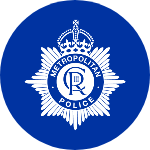|
Please review the following update regarding Anti Social Behaviour which some members around this area have highlighted as an issue of concern on the Met Engage priority survey.
What is antisocial behaviour?
There are three main categories for antisocial behaviour, depending on how many people are affected:
Personal antisocial behaviour is when a person targets a specific individual or group.
Nuisance antisocial behaviour is when a person causes trouble, annoyance or suffering to a community.
Environmental antisocial behaviour is when a person’s actions affect the wider environment, such as public spaces or buildings.
Under these main headings antisocial behaviour falls into one of 13 different types:
Vehicle abandoned: This covers vehicles that appear to have been left by their owner, rather than stolen and abandoned. It includes scrap or ‘end of life’ vehicles and those damaged at the scene of a road traffic collision that have been abandoned and aren’t awaiting recovery.
Vehicle nuisance or inappropriate use: This relates to vehicles being used in acts such as street cruising (driving up and down the street causing annoyance and bothering other road users), vehicle convoys and riding or driving on land other than a road. It also covers the misuse of go-peds, motorised skateboards and electric-propelled cycles, and the unlicensed dealing of vehicles where a person has two or more vehicles on the same road within 500 metres of each other.
Rowdy or inconsiderate behaviour: This refers to general nuisance behaviour in a public place or a place to which the public have access, such as private clubs. It does not include domestic-related behaviour, harassment or public disorder which should be reported as crimes.
Rowdy or nuisance neighbours: This covers any rowdy behaviour or general nuisance caused by neighbours, including boundary and parking disputes. It also covers noise nuisance from parties or playing loud music.
Littering or drugs paraphernalia: This includes fly posting and discarding litter, rubbish or drugs paraphernalia in any public place.
Animal problems: This covers any situation where animals are creating a nuisance or people’s behaviour associated with the use of animals is deemed as antisocial. It includes uncontrolled animals, stray dogs, barking, fouling and intimidation by an animal.
Trespassing: This is any situation in which people have entered land, water or premises without lawful authority or permission. It ranges from taking an unauthorised shortcut through a garden to setting up unauthorised campsites.
Nuisance calls: This covers any type of communication by phone that causes anxiety and annoyance, including silent calls and intrusive ‘cold calling’ from businesses. It does not cover indecent, threatening or offensive behaviour which should be reported as crimes.
Street drinking: This relates to unlicensed drinking in public spaces, where the behaviour of the persons involved is deemed as antisocial. It also covers unplanned and spontaneous parties which encroach on the street.
Prostitution-related activity: This relates to any activity involving prostitution such as loitering, displaying cards or promoting prostitution. It may also refer to activities in and around a brothel that impact on local residents. It does not include ‘kerb-crawling’ which should be reported as a crime.
Nuisance noise: This relates to all incidents of noise nuisance that do not involve neighbours (see ‘Nuisance neighbours’ above).
Begging: This covers anyone begging or asking for charitable donations in a public place, or encouraging a child to do so, without a license. Unlicensed ticket sellers at or near public transport hubs may also fall into this category.
Misuse of fireworks: This will include the inappropriate use of fireworks, the unlawful sale or possession of fireworks and noise created by fireworks.
 Antisocial behaviour can come in many forms and can require support from more organisations than just the police. There are 13 different types of antisocial behaviour that we may be able to help with, including abandoned vehicles, littering or drugs paraphernalia and street drinking. A full list of what we categorise as antisocial behaviour is available on our website. If you have witnessed or experienced antisocial behaviour, you can report it online. If you ever experience this issue or have information regarding an incident, please report it using our online reporting tools at https://www.met.police.uk/, speak to an operator in our Force Communications Room via our online web chat or call the non-emergency number 101. Alternatively, you can stay 100% anonymous by contacting the independent charity Crimestoppers on 0800 555 111 or via their untraceable online form at crimestoppers-uk.org. Get Involved We are working on our brand-new strategy for how we police London and we want your help. Our New Met for London: Phase 2 strategy will guide how we deliver on behalf of Londoners over the next three years, and we want to make sure you have had the chance to have your say. The consultation paper is available online, as well as a survey to let us know what you think. This closes on the 15 September. Please consider getting involved by registering for these messages, this will enable you to contribute to the local priority survey. We may be unaware of issues that you would like us to focus on. Take a few minutes to securely and privately register and have your say using the button below, this will mean we can focus on things that matter to you. 
Please click here to complete the survey
| 





